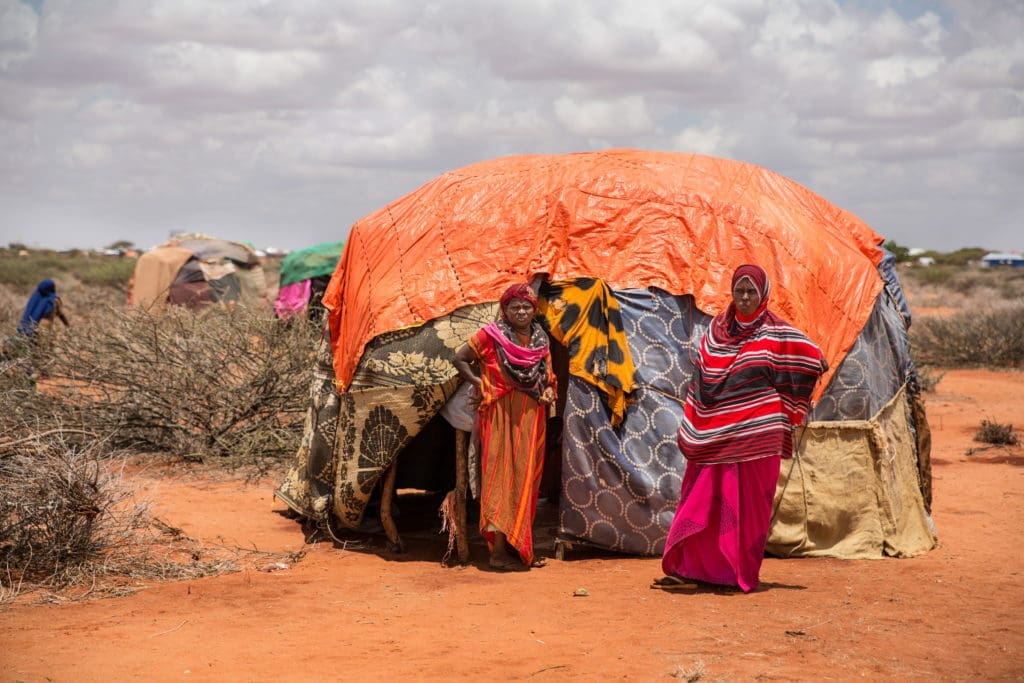
Hunger Could Double in East Africa and the Horn in Months as Coronavirus Spreads
NAIROBI – The dire socio-economic consequences of the COVID-19 pandemic may more than double the number of hungry people in East Africa and the Horn over the next three months, a report from the United Nations World Food Programme (WFP) has found.
The most vulnerable and at risk are poor urban communities living hand-to-mouth in informal settlements, and millions of refugees located in densely populated camps across the region.
An estimated 20 million people already faced acute food insecurity in nine countries before COVID-19 arrived in East Africa and the Horn, with numerous food crises, a massive outbreak of desert locusts and extensive flooding threatening millions across the region, which includes Ethiopia, South Sudan, Kenya, Somalia, Uganda, Rwanda, Burundi, Djibouti and Eritrea.
WFP projects that the number of acutely food insecure people is likely to increase to between 34 and 43 million from May through July due to the socio-economic impact of the pandemic. If the number of hungry reaches 43 million, it would have more than doubled. Among the hungry may be 3.3 million refugees spread across the nine countries.
“A shortage of funding already means most refugees in the region are not receiving all the food they need, and they could face further cuts as scarce resources become even more over-stretched,” said UNHCR Regional Director Clementine Nkweta Salami.
“High levels of malnutrition in densely populated camps and settlements make refugees particularly vulnerable during the COVID-19 outbreak,” she added. “Some refugees also live in urban areas, often in the poorest informal settlements, representing a significant proportion of the urban poor in many countries in the region.”
“COVID-19 is unprecedented as it affects not just one country or region, but the whole world. It is not just a supply side problem, such as drought, or a demand side issue such as a recession – it is both at the same time and on a global scale,” said WFP Deputy Regional Director Brenda Behan.
“More people are expected to die from the socio-economic impact of COVID-19 than from the virus itself,” she said. “And refugees and the urban poor across the region are at greatest risk.”
Some half of the urban population in the region lives in informal urban settlements or slums, with 25 million people living hand-to-mouth each day. Millions have already lost their jobs as economies falter amid lockdowns and curfews to stop the spread of COVID-19.
Governments and humanitarian organizations are scrambling to address the loss of food security for many families in urban areas, or risk the destabilizing effects of urban unrest.
WFP has a funding shortfall of $103 million to provide full food rations or full cash transfers to more than 3 million refugees in the nine countries in the region through September.
With governments in the region imposing restrictions delaying cross-border trade because of fears that truck drivers are spreading COVID-19, WFP calls for cooperation to keep both commercial and humanitarian goods flowing so people receive the right food at the right time.
COVID-19 is spreading across the region at the same time as fears are increasing that new swarms of desert locusts, particularly in Ethiopia, Kenya and near Somalia may eat newly planted crops ahead of the main harvest from July to September. Floods during the current long rains are another additional threat to people and food supplies in much of the region.
# # #
The United Nations World Food Programme is the world’s largest humanitarian organization, saving lives in emergencies, building prosperity and supporting a sustainable future for people recovering from conflict, disasters and the impact of climate change.
Follow us on Twitter @WFP_Africa @WFPUSA
A link to the WFP report is here: https://docs.wfp.org/api/documents/WFP-0000115462/download/
For more information please contact (email address: firstname.lastname@wfp.org):
Peter Smerdon, WFP/Nairobi Tel. + 254 20 7622179, Mob. +254 707 722104




